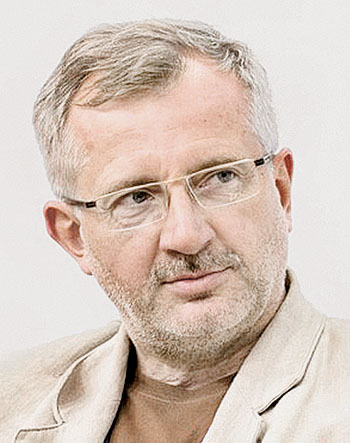EU-Russia summit: aftertaste
Marek SIWIEC: “We respect Russia’s stand, but we do not accept her attempts to assume all the rights of peoples in the region”
As The Day wrote in the article “It Is Time to Speak Frankly,” there was a “frank and honest exchange of opinions” between the two sides, particularly about Ukraine and the Eastern Partnership, at the EU-Russia summit. This is what European Council President Herman van Rompuy said, among other things, at the post-summit press conference. In his words, the European Commission president and he tried to convince Russian President Vladimir Putin that the EU Association Agreement does not impair Russian interests at all. In his turn, Putin made it clear that he had nothing against Ukraine’s sovereign choice but he still had questions about the consequences of this agreement for the economy of Russia. Putin thinks these consequences are disastrous. Otherwise, why was it necessary to force Kyiv to refrain from signing it by way of pressure and customs wars last year?
Putin also showed failure to understand the very essence of protests in Ukraine, saying that he views them as signs of extreme nationalism. Moreover, the Russian leader saw on an unidentified TV channel, that “in western Ukraine a priest calls on the crowd to go to Kyiv and bash the government so that the blacks, Moskali [Russians. – Ed.], and kikes do not lord it over in our house.”
The Day asked MEP Marek SIWIEC to comment on the “frank dialog” of EU and Russia leaders and the statement of Putin.
“The problem is that the two sides – the European Union and the Russian Federation – are taking absolutely different approaches to the future of Ukraine. Russia is pressuring and blackmailing Ukraine to join the Customs Union. On the contrary, the European Union has suggested signing the Association Agreement. As we can see, interests are different, but, after all, Ukraine gave in to blackmailing and changed her way, renouncing integration into Europe. Our position is as follows: it is unacceptable that an economically strong neighbor should be blackmailing a sovereign state.
“As for Putin’s claim about extremist priests, I must say that the Russian president is very good at using the words that are very suitable for him but are not necessarily in line with reality. Extremists are not the problem of Ukraine today. The chief problem is the crimes committed by the current authorities, such as murders and kidnappings of people. If you look at the number of victims among the protesters, you will justify their reaction. I would emphasize the very mechanism of revenge – violence begets more violence.
“Now about the Association Agreement. Naturally, Ukraine poses no threat to Russia. Speaking of the EU-Russia rivalry for Ukraine, the European Union is not a military organization. But the EU adheres to certain principles and values. I believe that there still is room for discussing the future of this region. We respect Russia’s stand, but we do not accept her attempts to assume all the rights of peoples in the region in order to dominate over them.”






